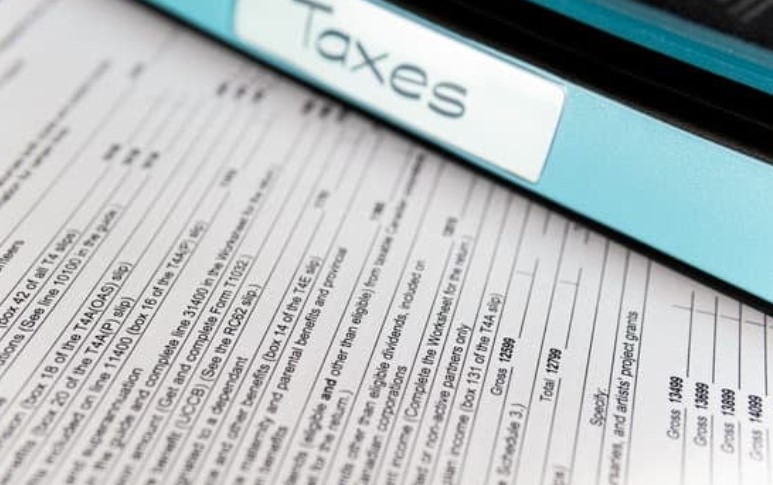Ready to turn your business dreams into reality? If you’re an aspiring entrepreneur in beautiful British Columbia, this blog post is here to guide you through the process of registering a business in BC. Whether you’re venturing into the world of sole proprietorship, partnership, or even considering incorporating your company, we’ve got you covered. But first things first – let’s uncover why registering your business is not just a legal obligation but also a strategic move that can unlock numerous benefits and opportunities for growth. So grab a coffee, sit back, and let’s dive into the exciting world of business registration in BC!
What Does Registering a Business Entails?

Registering a business is like giving your entrepreneurial journey an official stamp of approval. It’s the process through which you make yourself known to the world as a legitimate entity, separate from just being an individual with a brilliant idea. When you register your business in BC, you are essentially making it public knowledge that you exist and are ready to conquer the market.
The Canadian Registrar of Companies becomes your go-to authority for this important step. While registering may be optional for some, there are specific industries where it becomes necessary. If you’re managing a partnership in sectors such as trading, manufacturing, or mining, registration is compulsory. Moreover, if you choose to operate under a name other than your own – perhaps something catchy and memorable – then registration becomes mandatory.
Entrepreneurs in British Columbia understand the significance of standing out and establishing their presence within their chosen industry. By registering their businesses with the Canadian Registrar of Companies, they gain credibility among potential clients and partners alike. It’s all about creating that professional image and building trust from day one.
Why Should You Register a Business?
Registering a business is not just a bureaucratic formality; there are important reasons why the Canadian government requires it. By registering your business, you give it legal recognition as a separate entity from yourself as the owner. This distinction is crucial because it means that your business can now operate with its rights and liabilities.
One of the main benefits of registering your business is that it allows you to open business accounts. These accounts serve as a professional way to receive payments and keep your finances separate from your business finances. Having a dedicated bank account for your business also helps build credibility and trust with clients and partners.
Furthermore, registering your business makes it easier for you to apply for loans or obtain financing. Lenders often require proof of business registration before approving loans or credit cards for businesses. Being able to demonstrate that you have a registered and legitimate enterprise increases your chances of securing financial support.
Additionally, when you register your business, hiring employees becomes much simpler. As a registered establishment, you gain access to Canada’s Job Bank, which provides access to qualified job seekers across the country. This can streamline the recruitment process by connecting you directly with potential candidates.
Registering your business offers numerous advantages such as establishing credibility, accessing banking services specific to businesses, facilitating loan applications, and making employee recruiting more efficient through government resources like the Job Bank in Canada.
Benefits of Registering a Business
Registering a business in BC comes with several benefits that make the process worthwhile. One of these benefits is the ability to own business accounts. Having a dedicated bank account for your business allows you to receive payments from partners or clients, projecting a professional image and keeping your personal and business finances separate.
Another advantage of registering your business is that it becomes easier to apply for loans. Many lenders in Canada require businesses to be registered before approving loan applications. Additionally, having proof of ownership also helps when applying for a business credit card, providing further financial flexibility and opportunities for growth.
Hiring employees can be challenging, especially when time is limited. However, being a registered establishment gives you access to Canada’s Job Bank, which contains records of highly employable individuals across the country. This makes finding competent employees more accessible and increases your chances of building a strong team.
The journey of learning how to register a business in BC brings numerous rewards. From owning dedicated business accounts and facilitating loan applications to accessing valuable resources like Canada’s Job Bank for hiring purposes, registering your business opens doors to various advantages that can contribute significantly to its success.
Types of Businesses You Can Register in BC

Understanding the types of businesses you can register in BC is an important step when it comes to registering your own business. Each type of business has different prerequisites and costs associated with its registration process.
- There is the option of a sole proprietorship. This type of business is owned and operated by one person, and all earnings generated go directly to the owner. Starting a sole proprietorship requires little capital and is relatively simple. However, it’s important to note that as the owner, you assume all risks and are responsible for paying taxes.
- Another option is a partnership, which involves two or more people running and owning a company together. Partnerships are also relatively easy to start up since responsibilities can be shared among owners. Additionally, having multiple decision-makers at the top can improve decision-making procedures. However, it’s crucial to consider potential conflicts between partners as they could impact the success of the business if one partner decides to leave.
- Incorporated companies are registered as separate legal entities independent from their owners. Examples include Limited Liability Partnerships (LLP), Private Limited Liability Companies, and Public Limited Liability Companies. Incorporating provides credibility for investors and makes fundraising easier; however, this process tends to be more complex and expensive compared to other options.
- Cooperatives are formed by individuals with similar interests who come together to achieve shared economic or social objectives. Members of cooperatives have access to products produced by their own company while enjoying tax advantages such as lower taxation rates.
- Societies are non-profit organizations created for public interest purposes under specific regulations outlined in the Societies Act in BC. They establish their own set of bylaws and constitutions unique to their organization’s operations while being exempt from income tax within Canada.
By understanding these various types of businesses available for registration in BC, aspiring entrepreneurs can choose which structure best aligns with their goals before embarking on the registration process
Requirements for registering a business in BC
When it comes to registering a business in British Columbia (BC), there are a few requirements you need to fulfill. You must either be an owner or have employees. Additionally, you’ll need to provide certain details such as your last name, date of birth, personal postal code, Social Insurance Number (SIN), business name and business number (if applicable). You also need to specify the type of business you’re registering – whether it’s a sole proprietorship, partnership, etc.
Furthermore, you’ll need to provide the street and postal addresses for your establishment along with a description of the business. It’s important to note that if there are multiple owners involved in the business, their names and SINs will also be required.
Registering a business in BC involves two basic procedures: getting your chosen business name approved and reserved, and filing a Statement of Registration. Each process has its own set of steps that need to be followed accordingly. Be sure not to overlook any fees associated with these processes as incorrect payment can lead to registration failure. All fees must be paid directly to the Minister of Finance through various acceptable methods such as cheques, bank drafts, cash or money orders.
Taking care of these requirements will ensure that your journey toward registering a business in BC is smooth and successful!
How to Register a Business in BC?

Registering a business in British Columbia (BC) is a relatively straightforward process that involves registering the business name and the business itself. Whether you are starting a sole proprietorship, partnership, or corporation, there are certain steps you need to follow to ensure compliance with BC laws.
It’s important to determine what type of business entity you want to establish. This will depend on factors such as your liability preferences and tax considerations. Options include sole proprietorships, partnerships, corporations, cooperatives, and societies.
Once you have decided on the type of business entity, you can begin the registration process. Start by choosing a unique and distinctive name for your business. Check if the desired name is available and not already in use by another registered company in BC.
Next, complete the necessary registration forms provided by BC Registry Services. These forms require information about yourself as an owner or director of the company, including your last name, date of birth, personal postal code, and Social Insurance Number (SIN), as well as details about your business such as its address and description.
After completing all required forms accurately and honestly according to BC regulations, submit them along with any applicable fees to BC Registry Services. It’s essential to pay attention to fee requirements specific to your chosen type of registration.
Upon successful submission of all required documents and payment of fees owed for registration services rendered by BC Registry Services; congratulations! Your new enterprise is now officially registered in British Columbia!
Remember that this guide provides only general information about how to register a business in BC; consulting an expert will provide more tailored advice based on individual circumstances.
Conclusion
Registering a business in BC is not as daunting a task as it may seem. With the right resources and information on hand, you can have your business up and running quickly. It’s important to remember that there are various steps involved in the process, including selecting a name for your business, choosing the legal structure of your company, registering with government agencies like Revenue Canada, obtaining necessary licenses or permits, and registering under applicable provincial laws such as GST/HST. Following these steps will ensure that you get your business off to the best possible start.
FAQs – How to Register a Business in BC?

1. Should I use OWNR to register my business?
If you want to avoid paying the high fees associated with hiring a lawyer in Canada to help you incorporate, using Ownr may be a smart option. If you want to manage all of your company files and documentation online in one location, this is a fantastic choice. It is also appropriate for individuals who are incorporating with few legal concerns.
2. Do I need to register a small business in Canada?
Yes, you need to register a small business in Canada if you meet any of the following criteria:
- You have employees
- You sell goods or services
- You make more than $30,000 in revenue in a year
If you meet any of these criteria, you are required to register your business with the government. There are a few different ways to register your business, but the most common way is to file a Business Name Registration (BNR) form with the Canada Revenue Agency (CRA).
3. How much money can you make before you have to register as a business Canada?
As mentioned above, you need to register your business in Canada if you make more than $30,000 in revenue in a year. However, there are a few exceptions to this rule. For example, you do not need to register your business if you are a sole proprietor and you make less than $30,000 in revenue in a year.
4. How much does it cost to register a small business in Canada?
The cost of registering a small business in Canada varies depending on the province or territory in which you are located. However, the average cost ranges from $200 – $1000. This includes the cost of filing the BNR form with the CRA, as well as any other fees that may be required by your province or territory.










